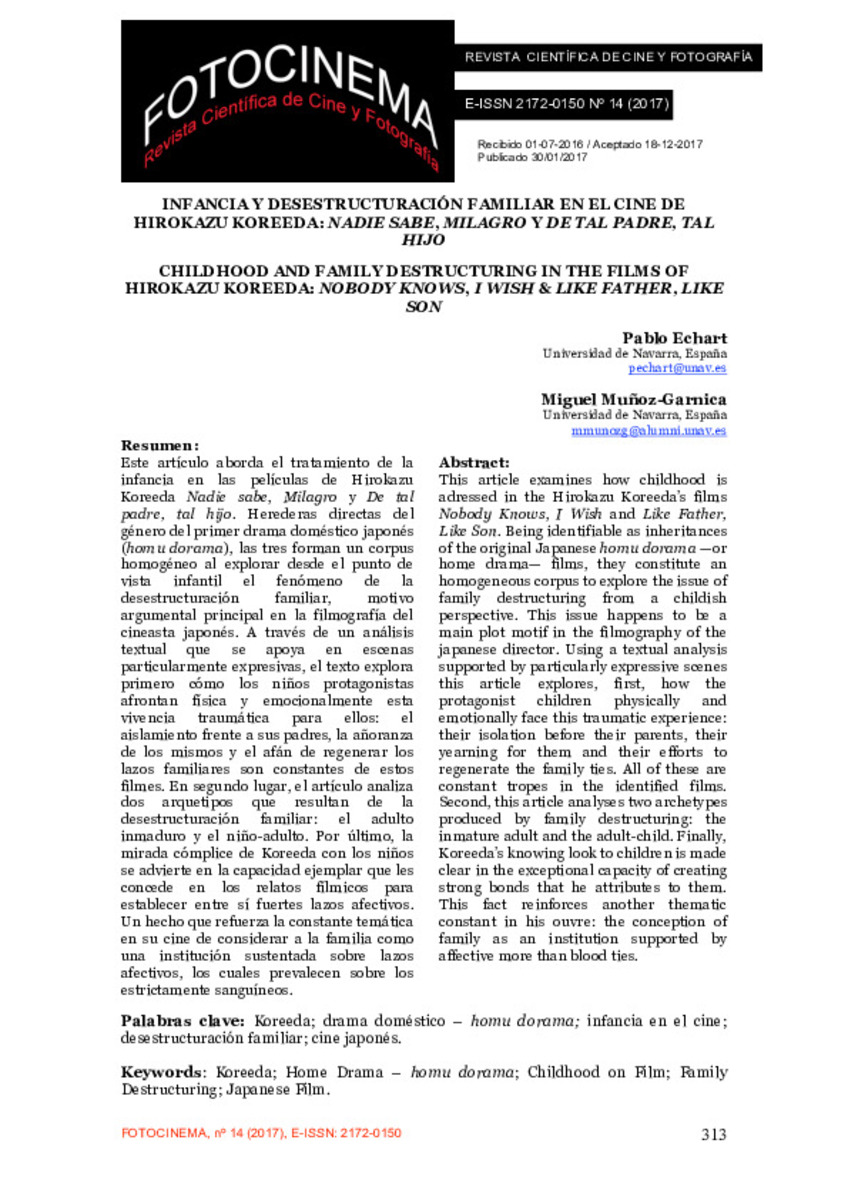Infancia y desestructuración familiar en el cine de Hirokazu Koreeda: Nadie sabe, Milagro y De tal padre, tal hijo
Other Titles:
Childhood and family destructuring in the films of Hirokazu Koreeda: Nobody knows, I wish & Like father, like son
Keywords:
Materias Investigacion::Comunicación::Comunicación audiovisual
Koreeda
Drama doméstico
Homu dorama
Infancia en el cine
Desestructuración familiar
Cine japonés
Childhood on Film
Family Destructuring
Japanese Film
Publisher:
Universidad de Málaga
Note:
Artículo bajo licencia Creative Commons Reconocimento-NoComercia-Compartirigual 4.0
Citation:
Echart, P. (Pablo); Muñoz-Garnica, M. (Miguel). "Infancia y desestructuración familiar en el cine de Hirokazu Koreeda: Nadie sabe, Milagro y De tal padre, tal hijo". Fotocinema. (14), 2017, 313 - 339
Statistics and impact
0 citas en

0 citas en

Items in Dadun are protected by copyright, with all rights reserved, unless otherwise indicated.








